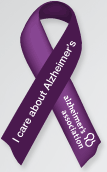One of the questions I am frequently asked by families and staff caring for people with Alzheimer’s disease is how to better understand the patterns of progression during the slow deterioration of the brain. This blog entry is a continuation of excerpts from my book, Alzheimer’s Basic Caregiving – an ABC Guide, as guidance on that topic. To order the book, click here.
By stage 6, people have usually given up their sense of responsibility, so that you no longer have to talk them out of going to work or getting home to make supper for their children. Some people in this stage – having forgotten what they have forgotten – are fairly content and easily pleased by simple kindness or a little attention.
Others seem to wake each day feeling like strangers in a strange land. They often do not know where they are and have a fear of being alone. If you ask someone in Stage 6 who is living in an assisted living residence where she is, her answer is likely to be the most logical place she can come up with based on a past reality or the size of the place. She may think she is in a college dormitory, a hotel, on a cruise, or any number of other places in a city where she once lived.
Often her comfort with her surroundings is somewhat precarious, based on being in view of friendly faces or someone she knows. Therefore, she may follow you everywhere you go (called “shadowing”) and may ask questions like, “Where should I be?” or “What should I do?” Some people will sit quietly for hours as long as a person they feel safe with is present. Others are looking for things to occupy them, and can still successfully participate in activities requiring repetitive actions (sweeping, folding napkins, wiping counters), simple sorting (poker chips by color, screws from bolts) or rote memory (washing dishes, singing songs) to name just a few examples.
This is a time when language abilities diminish significantly and when recent memory constantly disappears so that for the person in Stage 6 yesterday might never have happened. However, feelings remain strong. A person may not remember what happened at lunch to upset her, but the feelings of being upset may linger through the afternoon unless something pleasant happens to counteract it.
People in Stage 6 tend to need significant assistance with all their dressing and grooming tasks including toileting. They may begin to be incontinent of bladder and bowel. If they didn’t begin to have a disruption of their sleep/wake cycle in Stage 5, they may have it now, but others begin to seem to need more sleep, including more daytime naps.
They usually still respond to their own name (“Mary” – not “Mother” or “Mrs. Jones”) but they no longer recognize themselves in the mirror, probably because they are living in a past reality now more or less full-time; they may believe they are young mothers or even schoolchildren, so the old woman in the mirror is not someone they know. For this same reason – the fact that they imagine themselves much younger – they often do not know the names of many of the people who are close to them (or do not associate our aging faces with the names), although they will respond to familiar faces and they always know who loves them and whom they love.
Next up: Communication challenges in middle stage AD
Subscribe to:
Post Comments (Atom)








No comments:
Post a Comment